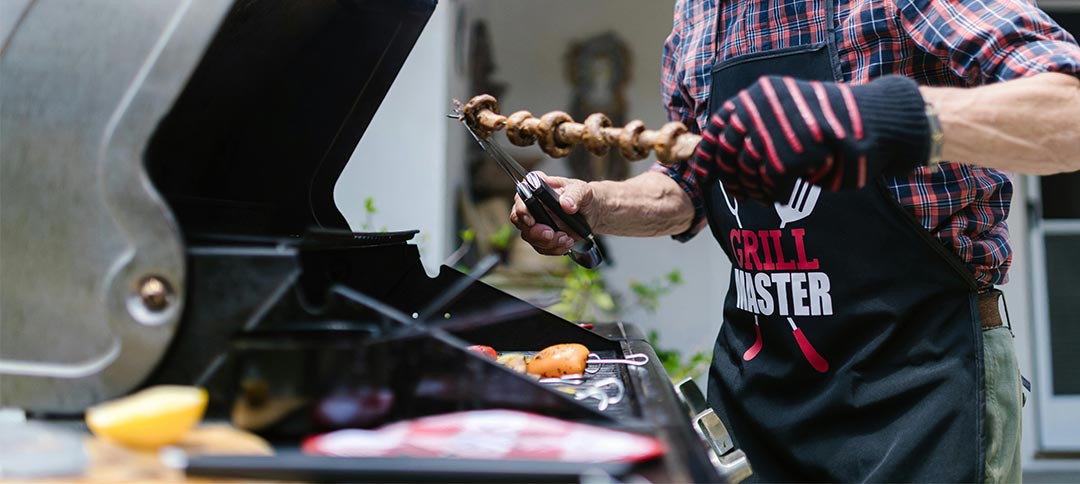Planning a fundraising event is exciting, but let’s be real, it’s also a lot. Between finding a venue, organizing volunteers, and making sure your guests have a great time, there’s one big question that often gets pushed aside: Do we need insurance for this?
The short answer? Yes, probably. Even small nonprofit events come with risks, and it’s not just about protecting your stuff. It’s about protecting people, your guests, your team, and your cause.
In this guide, we’ll walk through what kind of insurance your event might need, what it covers, how much it costs, and how to get it without overcomplicating things. Let’s take the stress out of planning, so you can focus on impact.
Why event insurance matters for nonprofit fundraisers
You put your heart into your events, so protecting them just makes sense. Whether it’s a gala dinner, a silent auction, or a community fun run, there’s always a chance something could go wrong. Someone trips. A vendor cancels at the last minute. Equipment breaks. Without insurance, your nonprofit might be the one picking up the bill.
But this isn’t just about money. It’s about peace of mind. When you have the right coverage in place, you can stop worrying about “what if” and start focusing on what matters, connecting with your supporters and growing your mission.
From our work with nonprofits, we know that having insurance isn’t just smart, it’s often required. Many venues won’t even let you sign a contract unless you show proof of coverage. And if you have a board of directors? They’ll probably ask for it, too. It’s all part of responsible risk management.
Event insurance helps protect your people, your property, and your reputation. And when something unexpected happens, you’ll be glad you planned ahead.
What type of events require insurance coverage?
Not every event is the same, and not every event needs the same kind of coverage. But here’s a simple rule we go by: if people are coming together in person, especially in a rented space, you probably need insurance.
Let’s say you’re planning a dinner at a local restaurant, a silent auction in a community center, or a family-friendly festival in the park. All of these come with some level of risk, and most venues will ask you for proof of insurance before you can move forward.
Even smaller events, like a donor meet-and-greet or a charity art show, can benefit from basic coverage, especially if you have volunteers working, food being served, or outside vendors involved.
And don’t forget: if you’re collecting money, promoting the event publicly, or inviting guests from outside your usual network, that ups the stakes.
We’ve seen it firsthand: the more prepared you are, the more confident your team feels. And the smoother your event runs.
Special event insurance coverage
Special event insurance sounds complicated, but it’s really just a safety net. It’s designed to protect your nonprofit if something goes wrong during your event, like if someone gets hurt, something gets damaged, or a vendor fails to show up.
Most policies cover two big areas: bodily injury and property damage. That means if a guest slips on a wet floor or someone accidentally breaks a rented speaker, you’re not paying out of pocket. It also helps with legal costs if someone decides to sue.
You’ll also hear the term “additional insured” a lot. That just means someone else, like your venue or a sponsor, is added to your policy, so they’re protected too. It’s super common, and most places require it.
If your event includes alcohol, live entertainment, food vendors, or large crowds, you’ll probably need extra coverage. And if you’re working with a tight budget? Don’t worry. These policies are usually pretty affordable, especially for one-time events.
We always tell our partners: it’s not about expecting the worst. It’s about being ready, just in case.
Common risks at nonprofit events
You can plan every detail, but events still come with surprises. And some of those surprises can be expensive if you’re not covered.
One of the most common issues? Slips and falls. It might sound simple, but it happens all the time. A spilled drink, a loose cord, a rainy sidewalk, suddenly, someone’s injured, and your organization is responsible.
There’s also the risk of property damage, like a broken projector, a scratched floor at the venue, or damaged equipment you rented for the night. These things aren’t always covered by the venue, and fixing them can add up fast.
If your event has kids, elderly guests, or volunteers doing physical tasks, that adds even more risk. We’ve seen cases where a volunteer twisted an ankle setting up chairs or a guest tripped over a speaker cord. Without insurance, those medical bills might land in your inbox.
And don’t forget about your reputation. One bad incident, especially if it’s handled poorly, can shake donor trust. That’s why having a plan (and coverage) in place makes a big difference.
Serving alcohol? Here’s what you need to know
If your event includes alcohol, even just a few glasses of wine, it changes the game. Suddenly, you’re not just thinking about fun; you’re thinking about liability.
This is where liquor liability insurance comes in. It covers your nonprofit if someone drinks at your event, causes harm, and you’re held responsible. That could mean a guest drives home and gets in an accident, or someone gets hurt because another guest had too much to drink.
Even if you hire a bartender or use a venue with a liquor license, that doesn’t mean you’re off the hook. Some venues have coverage that extends to events, but others don’t. And unless the bartender’s insurance specifically names your organization, you might still be liable.
We’ve seen nonprofits assume the venue “has it covered” and end up with legal trouble later. The safest move? Ask questions. Make sure someone has liquor liability coverage, and that your name is listed as additional insured if needed.
Serving alcohol can raise money and make events more social. Just make sure you’ve got the right protections in place, so one drink doesn’t become a disaster.
What happens if you have to cancel the event?
Sometimes, despite all your planning, things just don’t go as planned. A storm rolls in. A key speaker gets sick. A pipe bursts at your venue the night before your big day. That’s when event cancellation insurance can save you from a serious financial hit.
This type of coverage helps you recover costs if you need to cancel, postpone, or cut your event short due to things outside your control. That could mean weather, illness, power outages, or even issues with your venue.
We’ve seen this kind of coverage save organizations thousands, especially for larger events with upfront costs like catering, rentals, or entertainment. It’s not just about protecting money, either. It’s about protecting your momentum and keeping donor trust intact when something beyond your control changes your plans.
A lot of nonprofits skip this part because they think, “That won’t happen to us.” But as anyone who’s planned events during unpredictable times (yes, including COVID) knows, it’s always better to have a backup plan.
If your event is high-cost, outdoors, or relies on vendors or talent with limited availability, event cancellation coverage is worth looking into.
How much does nonprofit event insurance cost?
Good news, event insurance is usually more affordable than people think. For most single-day events, you can expect basic liability coverage to cost around $100 to $300. That cost increases if you add riders like liquor liability, cancellation coverage, or expect a larger crowd.
Here’s a bit more detail based on real examples:
- Budget percentage method: Insurers suggest planning to spend 1–3% of your event budget on insurance. So if your event costs $10,000, that’s roughly $100 to $300.
- Event scale:
- Small charity events typically range between $200 and $500.
- Larger events can cost $2,000 or more, depending on complexity and risk level.
- Duration matters too: A median one-day event policy runs about $182, while events lasting 2–10 days average around $250, with longer ones averaging $257.
A few things drive the price:
- Guest count and crowd size
- Event venue and location
- Activities, like serving alcohol
- Being added as additional insureds (for venues or partners)
- Extra coverage layers, such as cancellation protection
We’ve seen nonprofits feel sticker shock at first, but when you compare these cost estimates to the potential cost of an accident or cancellation, it’s usually a clear investment. And if you’re planning multiple events in a year, ask about annual packages, those can bundle coverage and save you money.
Best practices for securing charity event insurance
Getting event insurance doesn’t have to be complicated. Here’s how to make the process smooth and stress-free.
Start early. As soon as you’ve locked in a date and venue, start looking into insurance. Some policies can be set up last minute, but earlier is always better, especially if you need special coverage or have multiple partners involved.
List everyone who needs to be covered. This usually includes your nonprofit, the venue, and sometimes vendors or sponsors. You’ll want to make sure they’re added as additional insureds on your policy, which is usually a simple (and free) step.
Be clear about what your event includes. Are you serving alcohol? Using volunteers? Hosting outdoor activities? These details affect your coverage, so be honest and thorough when filling out forms.
Ask questions. Not all insurance providers understand how nonprofits operate. Find one that does. Ask if they’ve worked with similar organizations or covered your type of event before.
Get the paperwork in writing. Once your coverage is in place, keep digital and printed copies of your certificate of insurance
. Most venues will ask for it, and you’ll want it handy just in case something goes wrong.
How to choose the right provider
Not all insurance companies are built the same, especially when it comes to nonprofits. You want a provider that understands your mission, your budget, and the unique risks that come with fundraising events.
Start by looking for experience with nonprofits. Some providers focus only on weddings or corporate events. That’s not you. Look for companies that have covered things like community fundraisers, galas, auctions, or walkathons. They’ll know the right questions to ask (and what not to overcharge you for).
Here are a few names we’ve seen nonprofits use often:
- RVNA – Good for small to mid-sized nonprofit events. Known for fast online quotes.
- Eventsured – Offers a wide range of coverage options, including cancellation and liquor liability.
- Markel – Popular with nonprofits that need broader, more customized policies.
- USLI – Offers flexible coverage and strong customer support.
- Travelers – Better for larger or higher-risk events with more complexity.
Ask for a sample quote before committing. And make sure you’re not paying for more than you need. A simple one-day event doesn’t need the same kind of coverage as a multi-day festival with alcohol and live music.
Last thing, look for clear, easy communication. If an insurer makes you feel confused or rushed during the process, they’re probably not the right fit. This should feel like a helpful step, not a hurdle.
Protect the work you’re putting in
Fundraising events are a powerful way to connect with your community and move your mission forward. But with all the moving parts, venues, volunteers, food, entertainment, it’s smart to protect the work you’re putting in. Event insurance isn’t just a checkbox. It’s how you make sure one accident doesn’t undo months of planning (or years of trust).
From basic liability to liquor and cancellation coverage, having the right policy in place gives you something every nonprofit leader needs: peace of mind.
Want help planning a safe, successful event that makes a real impact? At Harness, we do more than just fundraising tech. We’re your partner in growth, ready to help you connect with donors and move your mission forward.




